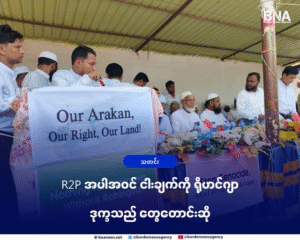Translated and edited from U Aung Tin’s post.
As Myanmar edges toward another controversial election, a destructive mindset is resurfacing: the belief that anyone with a different strategy is an enemy. This zero-sum attitude, deeply rooted in the national psyche, risks turning opposition groups against one another—ultimately strengthening the very dictatorship they all claim to resist.
For decades, Myanmar society has been plagued by a toxic mentality: “If you win, I lose. If you are not like me, you are my enemy.” This narrow view, ingrained across all communities, has fueled divisions at every level of politics and society.
The tragedy is that even among those who oppose military rule, this same pattern repeats. Different tactics or approaches are not tolerated; instead, rivals accuse each other of being “worse than the junta” and vow to eliminate one another first. Such behavior persists, visible and corrosive, to this very day.
History itself offers lessons. Even brothers from the same family—or leaders such as General Khin Nyunt and Dr. Than Nyein—did not share identical visions. Yet today’s opposition forces still cling to a rigid “You’re with us or against us” stance that narrows political imagination.
As the next election approaches, these fractures are widening. Among the Karen, mutual threats and recriminations are growing louder. Soon, similar patterns are likely to emerge among the Kachin, Chin, Rakhine, Shan, Mon, and Karenni. If left unchecked, the people will end up fighting, killing, and destroying one another—doing the junta’s dirty work on its behalf.
The alternative is not naïve unity but Strategic Political Division against Dictatorship—a mature approach where differences in tactics are managed wisely, and competing groups recognize that their real enemy is the military regime, not one another.
Otherwise, Myanmar risks repeating the proverb of the fighting cocks: weakening each other until both sides become a feast for the dictatorship.
Closing Call:
To resist tyranny, Myanmar’s diverse opposition must break free from the destructive cycle of “different from me, my enemy.” Only by embracing strategic maturity can the people turn division into strength—and deny the military the victory it cannot win on its own.
Read also: UNITY in DIVERSITY





